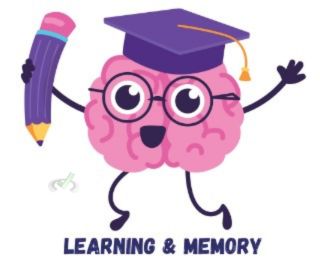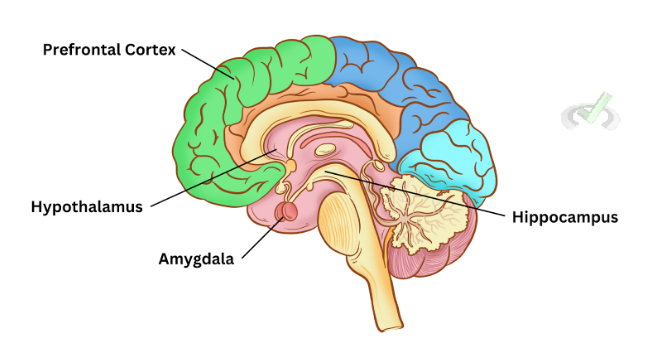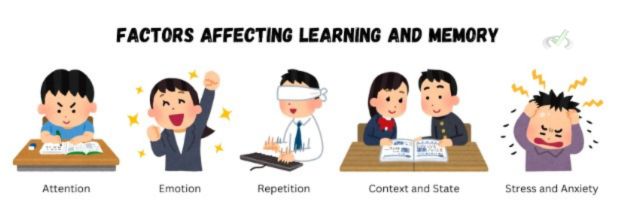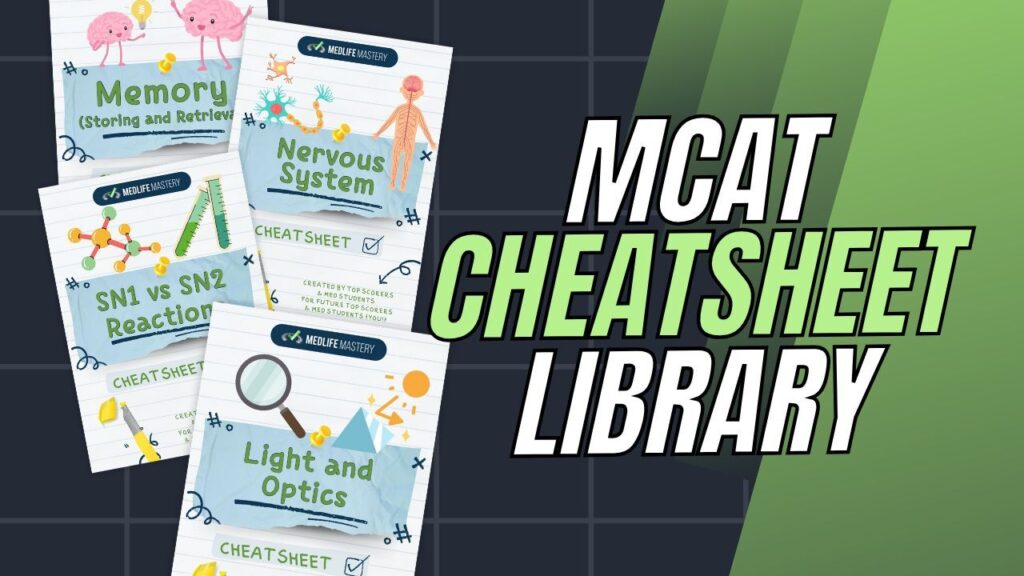Learning and memory are important parts of how we think. They help us gain new knowledge, remember it, and use it later. Understanding how these processes work in the brain helps us learn better. Let's explore the key ideas.
I. Understanding Learning and Memory

Learning is the process of gaining new information or behaviors. Memory is the ability to store and recall this information. Both are essential for personal growth and adaptation.
Types of Memory
There are different types of memory, each with specific roles:
- Sensory Memory: This is very short-term memory that lasts only a few seconds. It lets us briefly remember things we see or hear, like a flash of lightning.
- Short-Term Memory (Working Memory): This holds the information we are currently thinking about or using, lasting about 20-30 seconds. For example, remembering a phone number long enough to dial it.
- Long-Term Memory: This stores information for a long time, from days to a lifetime. It includes:
- Explicit Memory: Facts and events we can recall, like a history date or a birthday.
- Implicit Memory: Skills and habits we perform without thinking, like riding a bike.
II. The Brain and Learning

The brain is central to learning and memory. Different parts play specific roles:
Hippocampus
The hippocampus is key for forming new long-term memories, especially facts and events. For example, it helps you remember your last vacation.
Amygdala
The amygdala helps us remember experiences with strong emotions, like a scary event or a fun day.helps us remember experiences with strong emotions, like a scary event or a fun day.
Neurons and Synapses
Learning and memory involve neurons (nerve cells) and their connections, called synapses. When we learn, neurons send signals to each other, strengthening the synapses.
This process is called synaptic plasticity. For instance, practicing a skill strengthens the synapses related to that skill.
Neurotransmitters are chemicals that transmit signals between neurons. Dopamine, for example, is involved in motivation and reward, which are important for learning.
Other Brain Areas
Other parts of the brain also help with learning and memory:
- Prefrontal Cortex: Helps with decision-making and working memory.
- Cerebellum: Important for motor skills and coordination.
III. The Process of Learning
Learning involves several steps:
Encoding
Encoding is turning information into a form the brain can store. It often involves connecting new information with what we already know. This makes it easier to remember.
Consolidation
Consolidation stabilizes a memory after it's formed. The brain reviews the memory, making it stronger. Sleep is crucial for this process. It helps solidify both factual knowledge and skills.
There are two types of consolidation:
- Synaptic Consolidation: Happens over minutes to hours and involves changes at the synapse level.
- Systems Consolidation: Occurs over weeks to years, reorganizing memory across the brain.
Retrieval
Retrieval is accessing stored information when needed. The more we recall a memory, the stronger it becomes. This is why reviewing material helps us learn. The context or environment in which we learn something can also help us recall information.
IV. Factors Affecting Learning and Memory
Several factors influence how well we learn and remember:

Attention
Attention is crucial for encoding information. Without focus, our brains can't process and store new data effectively. For example, studying in a quiet place helps us focus.
Emotion
Emotions significantly impact memory. Events with strong emotions are remembered better because of the amygdala's role. For instance, you're more likely to remember a happy celebration or a frightening experience.
Repetition
Repeating information strengthens neural connections, making it easier to recall. This is why studying or practicing repeatedly is effective.
Context and State
The context and our physical or emotional state during learning can affect memory recall. For example, studying in the same environment as the test room can help recall information.
Stress and Anxiety
Stress and anxiety can hinder memory formation and retrieval. High stress can disrupt the process, making it harder to form long-term memories.
V. Bridge/Overlap
Grasping the biological basis of learning and memory connects with other areas.
Cognitive Psychology
This field studies mental processes like thinking and problem-solving. It is closely related to how we process information, linking it with memory research.
Neuroplasticity
Neuroplasticity refers to the brain's ability to change and adapt. It's important for learning new skills and recovering from injuries. For example, neuroplasticity can help the brain regain lost functions after a stroke.
Mental Health
Memory plays a role in conditions like PTSD, where traumatic memories are vividly recalled. Understanding these mechanisms can help develop therapies to manage these memories.
Aging and Neurodegenerative Diseases
As we age, our memory can decline. Conditions like Alzheimer's disease, which affect the brain's structure and function, can severely impact memory. The research aims to understand and reduce these effects.
VI. Wrap Up/Key Terms
Let's summarize the key points:
- Learning: Gaining new information or behaviors.
- Memory: Storing and recalling information.
- Hippocampus: Key for forming new long-term memories.
- Amygdala: Involved in emotional memory.
- Neurons and Synapses: Basic brain communication units; crucial for learning.
- Synaptic Plasticity: The ability of synapses to strengthen or weaken over time.
- Encoding, Consolidation, Retrieval: Key stages of memory processing.
- Attention, Emotion, Repetition, Context, Stress: Factors influencing learning and memory.
VII. Practice
Test your understanding with these questions:
Sample Practice Question 1
What role does the hippocampus play in memory?
A. It helps us remember emotional experiences.
B. It stores sensory information.
C. It is crucial for forming new long-term memories.
D. It is involved in short-term memory storage.
Ans. C
The hippocampus is essential for creating new long-term memories, especially facts and events.
Sample Practice Question 2
How does sleep affect memory consolidation?
A. It has no effect.
B. It weakens the memory traces.
C. It helps stabilize and strengthen memory traces.
D. It only affects short-term memory.
Ans. C
Sleep plays a vital role in memory consolidation by helping to solidify and strengthen the connections between neurons.







 To help you achieve your goal MCAT score, we take turns hosting these
To help you achieve your goal MCAT score, we take turns hosting these 





















 reviews on TrustPilot
reviews on TrustPilot